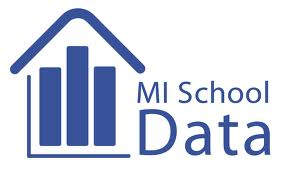Birch Run is part of Area 22 Special Olympics which covers Saginaw and Shiawassee Counties. The available sports to participate in are: Alpine Skiing, Aquatics, Athletics (Track and Field), Basketball, Bowling, Bocce, Cross Country Skiing, Cycling, Gymnastics, Poly Hockey, Snowshoeing, Soccer, Softball, and Volleyball. Below is a direct link to the Special Olympics of Michigan Webpage.
Mission Statement
The mission of Special Olympics is to provide year-round sports training and athletic competition in a variety of Olympic-type sports for all children and adults with intellectual disabilities. Athletes are given continuing opportunities to develop physical fitness and athletic skill, demonstrate courage, experience joy, and participate in a sharing of gifts, skills and friendship with their families, other Special Olympics athletes, and the community.
Statement of Eligibility
Eligibility for Participation in Special Olympics Special Olympics training and competition is open to every person with intellectual disabilities who is at least eight years of age and who registers to participate in Special Olympics as required by the Special Olympics General Rules.
There is no maximum age limitation for participation in Special Olympics. The minimum age requirement for participants in Special Olympics competition is eight years of age. Children who are at least six years old may participate in age-appropriate Special Olympics training programs offered by SOMI or in specific (and age-appropriate) cultural or social activities offered during the course of a Special Olympics event. Such children may be recognized for their participation, or through other types of recognition approved by SOI, which are not associated with participation in Special Olympics competition. However, no child may participate in a Special Olympics competition (or be awarded medals or ribbons associated with competition) before his or her eighth birthday.
Participation in Special Olympics is open to all persons with intellectual disabilities regardless of the level or degree of that person's disability, and whether or not that person also has other mental or physical disabilities.
A person is considered to have intellectual disabilities (for the purposes of determining eligibility for Special Olympics participation) if that person meets any one of the following requirements:
- The person has been identified by an agency or professional as having intellectual disabilities as determined by their localities;
- The person has a cognitive delay, as determined by standardized measures such as intelligent quotient or "IQ" testing or other measures, which are generally accepted within the professional community in the U.S. as being a reliable measurement of the existence of a cognitive delay;
- The person has a closely related developmental disability. A "closely-related developmental disability" means having functional limitations in both general learning (such as IQ) and in adaptive skills (such as in recreation, work, independent living, self-direction, or self-care). However, persons whose functional limitations are based solely on a physical, behavioral, or emotional disability, or a specific learning or sensory disability, are not eligible to participate as Special Olympics athletes.
One of Special Olympics' founding principles is that "Special Olympics must transcend all boundaries of race, gender, religion, national origin, geography, and political philosophy, and offer sports training and competition opportunities to all eligible persons with intellectual disabilities in accordance with uniform worldwide standards."
For technical questions and comments regarding this website, including accessibility concerns, please contact the Webmaster. Back to Top







